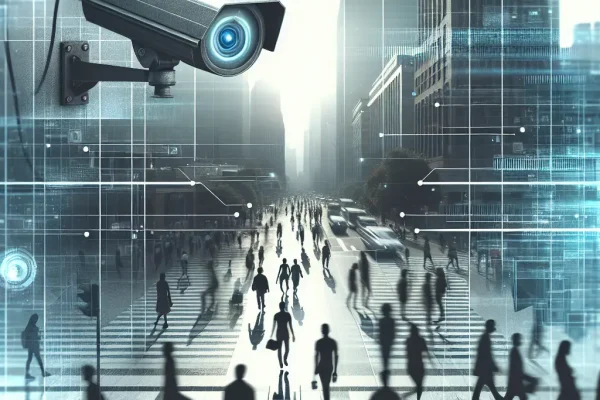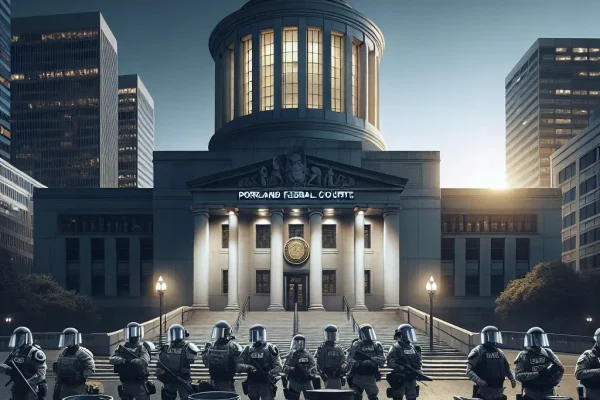In a move that sent shockwaves across the political spectrum, a prominent 2020 election denier has just been appointed to oversee U.S. election security—a role crucial to the integrity of American democracy. As questions mount over whether the very system designed to safeguard our votes is now under partisan threat, officials and citizens are forced to confront a hard truth: America’s electoral future may be more uncertain than ever before.
The Problem: Appointment Unleashes Election Security Oversight Controversy
On June 7, 2024, news broke that an individual with a well-documented record of denying the 2020 presidential election results had been appointed to a leading federal election security commission (Politico). This appointment—endorsed by partisan actors—is widely seen as an unprecedented move in the history of U.S. election governance. Why is this important? The new appointee will help shape the policies, oversight, and responses to future election integrity challenges, despite publicly challenging the validity of America’s previous democratic processes (New York Times).
Previously, election security oversight was generally bipartisan, deliberately insulated from overt partisanship to maintain public faith in elections. With this appointment of an election challenger to federal oversight, questions swirl: Is election security at risk due to partisan appointments? Could the presence of election deniers in government positions erode confidence further?
How Are U.S. Elections Secured?
U.S. elections rely on a complex web of local, state, and federal systems. Multiple security layers—paper ballots, risk-limiting audits, and cyber-defense teams—protect against fraud, hacking, and manipulation. According to Reuters, over 90% of votes in 2020 had verifiable paper trails, and every state underwent robust post-election audits (Reuters).
Yet, the impact of 2020 election claims lingers. A Pew Research Center study found that, as of 2023, just 44% of Americans were “very confident” ballots would be counted accurately, reflecting a sharp decline in trust over past cycles (Pew Research Center).
Why It Matters: The Human & National Impact
Elections are the bedrock of representative government. When citizens lose faith in how votes are cast or counted, the consequences ripple through every facet of society. Economic stability, foreign investment, even the country’s geopolitical standing hinge on election legitimacy.
Election misinformation—turbocharged by partisan appointments—directly impacts Americans’ willingness to participate in democracy. In 2022, New York Times reporting indicated that 17% fewer voters in key swing states said they would trust results if their preferred party lost—up from just 8% in 2016 (New York Times).
The emotional toll is steep. For many, watching an outspoken 2020 election denier assume a critical oversight role breeds anxiety, cynicism, and even outright disengagement from the political process. Every controversial appointment like this one fuels division and social unrest, undermining the collaborative spirit necessary for robust democracy.
Expert Insights & Data: Authority Voices on the Oversight Controversy
- Politico reports: The newly appointed official has “repeatedly questioned the outcome of the 2020 election, using public and social media platforms to advance unsubstantiated claims” (Politico).
- Reuters notes: The Federal Election Security Commission has historically prioritized nonpartisanship, and this appointment is viewed by some watchdogs as “deeply troubling for the principle of impartial election administration” (Reuters).
- New York Times analysis: The official’s “record of disputing 2020 results shadows every aspect of their new role—fueling fears of internal system sabotage” (New York Times).
- Pew Research Center: Confidence in the electoral process is tied to perceptions of fairness and transparency—both are jeopardized when oversight bodies lose their bipartisan character.
- Brennan Center for Justice: They noted that misinformation, particularly from government officials, is “uniquely powerful—and damaging” to democratic norms (Brennan Center).
Election experts stress that the long-term effects of election misinformation extend far beyond the ballot box—they fray community trust, deepen polarization, and sow vulnerabilities that adversaries, both foreign and domestic, can exploit.
Future Outlook: Risks, Predictions, and Opportunities (2024–2028)
The coming five years will be formative for U.S. election security. The ongoing election security oversight controversy triggered by partisan appointments could shape everything from legislative reform to international election-monitoring protocols.
Predictions and Risks:
- Persistent Partisan Influence: More partisan appointments to traditionally neutral bodies could further undermine public trust.
- Increased Misinformation: With officials who were once election challengers now in oversight positions, the risk of institutionalized misinformation grows.
- Election Official Exodus: Already, 1 in 5 local election officials has reported threats or left their post since 2020 (Brennan Center), and this trend could accelerate, leaving elections vulnerable to understaffing and inexperience.
- New Federal Safeguards: Conversely, this crisis could galvanize bipartisan legislative action for stricter conflict-of-interest rules and mandatory transparency in federal appointments.
Opportunities: With public attention focused as never before on the mechanics of election administration, there’s a chance to educate, innovate, and potentially restore trust. New technologies (e.g., open-source ballot tracking, expanded risk-limiting audits) could help restore confidence—if implemented transparently.
Case Study: Appointment of Election Challengers to Federal Oversight (Comparative Table)
| Year | Oversight Body | Appointee Background | Public Reaction | Election Trust Index* |
|---|---|---|---|---|
| 2016 | Federal Election Assistance Commission | Bipartisan Officials | Generally Positive | 74% |
| 2020 | U.S. Cybersecurity and Infrastructure Security Agency | Nonpartisan Security Experts | Strong Trust—”most secure election in history” | 62% |
| 2024 | US Election Security Commission | Vocal 2020 Election Denier | Polarized; Significant Outcry | 44% |
*Index shows the percentage of voters reporting strong confidence in election results (source: Pew Research, Politico aggregation).
Infographic Idea: “The Erosion of Election Trust: U.S. Confidence in Electoral Integrity, 2016–2024”—A timeline chart mapping public trust alongside key appointments and milestones.
Related Links
- [External: Brennan Center: Election Administration and the Truth]
- [External: Pew Research: Confidence in Election Security]
- [External: New York Times: New Election Security Official’s Record Under Scrutiny]
FAQ: Election Security, Oversight, and Partisan Risks
1. How are US elections secured against manipulation?
They rely on paper ballots, routine audits, cybersecurity teams, and decentralized control—making hacking or widespread fraud extremely difficult, according to U.S. Cybersecurity officials (CISA).
2. What is the impact of 2020 election claims on public trust?
Persistent denial and misinformation surrounding 2020 eroded trust in fair elections, with Pew Research showing a long-term decline in voter confidence.
3. Can election officials contest results?
Election officials must follow strict legal procedures to contest outcomes—typically requiring evidence of fraud or error. Oversight bodies oversee appeals impartially; broad refusals by officials to certify, as seen in some 2020 cases, are rare and controversial.
4. Are election security oversight commissions subject to partisan appointments?
Traditionally, such bodies aimed for bipartisanship. The appointment of election challengers to federal oversight is a recent and highly controversial development, raising fears of partisanship influencing national security.
5. What are the long-term effects of election misinformation?
Academic studies link persistent misinformation to decreased voter turnout, increased polarization, and even violence. It also weakens international perception of American democracy’s resilience (Reuters).
Conclusion
The 2020 election denier appointed to US election security has reignited the most urgent question facing America: Can democracy survive a crisis of confidence from within? While partisan appointments stoke controversy and deepen distrust, they also present an opportunity for renewed vigilance, public engagement, and policy reform. As the nation watches, the consequences of this unorthodox appointment could reshape the landscape of American elections for a generation—proof that the guardians of democracy matter as much as the process itself.
Share this story—America’s election integrity may depend on the spotlight you help keep shining.


